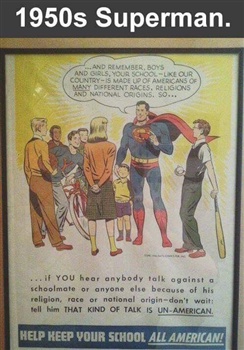Here is a list of Art Blogs ordered by Newest, posted by members. A Blog is a journal you may enter about your life, thoughts, interesting experiences, or lessons you've learned. Post an opinion, impart words of wisdom, or talk about something interesting in your day. Update your blog on a regular basis, or just whenever you have something to say. Creating a blog is a good way to share something of yourself with others. Reading blogs is a good way to learn more about others. Click here to post a blog.

Correct about the pig person
The name of these "pig person" is "the young family".It was exhibited in wearefamily series for the Australian Pavilion of the Venice Biennale in 2003.It was exhibited in Hara Contemporary Art Museum of Japan in 2004.
There is a center idea about it in Patricia Piccinini's mind.That is the imagination about near relation between human,science with nature. The format is according to pig person sculpture exhibition to discuss the relation between biological gene research with human.
In the future, the combination of man and nature, the family will produce what kind of scene? How will the evolution of the natural process change in human genetic engineering?Is it "good"or "bad"?This is the key point of the ethical discussion of genetic engineering.Piccinini's art works there is no strong criticism.The subject of his work "we are a family" is an inevitable prerequisite.We can not keep out eyes to the development trend of modern science and technology.Only after get the scepter of God it is human's burden.
The model of the sculpture.
"Pig people" and children together, whatever it is not harmonious.
Its kind of strange...

TED Talks:How to become a better communicator 3
Number seven: Try not to repeat yourself. It's condescending, and it's really boring, and we tend to do it a lot. Especially in work conversations or in conversations with our kids, we have a point to make, so we just keep rephrasing it over and over. Don't do that.
Number eight: Stay out of the weeds. Frankly, people don't care about the years, the names, the dates, all those details that you're struggling to come up with in your mind. They don't care. What they care about is you. They care about what you're like, what you have in common. So forget the details. Leave them out.
Number nine: This is not the last one, but it is the most important one. Listen. I cannot tell you how many really important people have said that listening is perhaps the most, the number one most important skill that you could develop. Buddha said, and I'm paraphrasing, "If your mouth is open, you’re not learning." And Calvin Coolidge said, "No man ever listened his way out of a job."
One more rule, number 10, and it's this one: Be brief. [A good conversation is like a miniskirt; short enough to retain interest, but long enough to cover the subject. -- My Sister] All of this boils down to the same basic concept, and it is this one: Be interested in other people. You know, I grew up with a very famous grandfather, and there was kind of a ritual in my home. People would come over to talk to my grandparents, and after they would leave, my mother would come over to us, and she'd say, "Do you know who that was? She was the runner-up to Miss America. He was the mayor of Sacramento. She won a Pulitzer Prize. He's a Russian ballet dancer." And I kind of grew up assuming everyone has some hidden, amazing thing about them. And honestly, I think it's what makes me a better host. I keep my mouth shut as often as I possibly can, I keep my mind open, and I'm always prepared to be amazed, and I'm never disappointed. You do the same thing. Go out, talk to people, listen to people, and, most importantly, be prepared to be amazed.

TED Talks:How to become a better communicator 2
Number one: Don't multitask. And I don't mean just set down your cell phone or your tablet or your car keys or whatever is in your hand. I mean, be present. Be in that moment. Don't think about your argument you had with your boss. Don't think about what you're going to have for dinner. If you want to get out of the conversation, get out of the conversation, but don't be half in it and half out of it.
Number two: Don't pontificate. If you want to state your opinion without any opportunity for response or argument or pushback or growth, write a blog. Now, there's a really good reason why I don't allow pundits on my show: Because they're really boring. If they're conservative, they're going to hate Obama and food stamps and abortion. If they’re liberal, they're going to hate big banks and oil corporations and d*ck Cheney. Totally predictable. And you don't want to be like that. You need to enter every conversation assuming that you have something to learn. The famed therapist M. Scott Peck said that true listening requires a setting aside of oneself. And sometimes that means setting aside your personal opinion. He said that sensing this acceptance, the speaker will become less and less vulnerable and more and more likely to open up the inner recesses of his or her mind to the listener. Again, assume that you have something to learn. Bill Nye: "Everyone you will ever meet knows something that you don't." I put it this way: Everybody is an expert in something.
Number three: Use open-ended questions. In this case, take a cue from journalists. Start your questions with who, what, when, where, why or how. If you put in a complicated question, you’re going to get a simple answer out. If I ask you "Were you terrified?" you're going to respond to the most powerful word in that sentence, which is "terrified and the answer is "Yes, I was" or "No, I wasn’t." "Were you angry?" "Yes, I was very angry." Let them describe it. They're the ones that know. Try asking them things like, "What was that like?" "How did that feel?" Because then they might have to stop for a moment and think about it, and you're going to get a much more interesting response.
Number four: Go with the flow. That means thoughts will come into your mind and you need to let them go out of your mind. We've heard interviews often in which a guest is talking for several minutes and then the host comes back in and asks a question which seems like it comes out of nowhere, or it's already been answered. That means the host probably stopped listening two minutes ago because he thought of this really clever question, and he was just bound and determined to say that. And we do the exact same thing. We're sitting there having a conversation with someone, and then we remember that time that we met Hugh Jack man in a coffee shop.
Number five: If you don't know, say that you don't know. Now, people on the radio, especially on NPR, are much more aware that they're going on the record, and so they're more careful about what they claim to be an expert in and what they claim to know for sure. Do that. Err on the side of caution. Talk should not be cheap.

TED Talks:How to become a better communicator 1
You know, it used to be that in order to have a polite conversation, we just had to follow the advice of Henry Higgins in “My Fair Lady”: Stick to the weather and your health. But these days, with climate change and anti-vaxxing, those subjects—are not safe either. So this world that we live in, this world in which every conversation has the potential to devolve into an argument, where our politicians can’t speak to one another, and where even the most trivial of issues have someone fighting both passionately for it and against it, it’s not normal. Pew Research did a study of 10,000 American adults, and they found that at this moment, we are more polarized; we are more divided than we ever have been in history.
We are less likely to compromise, which means we’re not listening to each other. And we make decisions about where to live, who to marry and even who our friends are going to be based on what we already believe. Again, that means we’re not listening to each other. A conversation requires a balance between talking and listing, and somewhere along the way, we lost that balance. Now, part of that is due to technology. The smartphones that you all either have in your hands or close enough that you could grab them really quickly.
According to the Pew Research, About a third of American teenagers send more than a hundred texts a day. And many of them, almost most of them, are more likely to text their friends than they are to talk to them face to face. There’s this great piece in The Atlantic. It was written by a high school teacher named Paul Barnwell. And he gave his kids a communication project. He wanted to teach them how to speak on a specific subject without using notes. And he said this:” I came to realize…”“I came to realize that conversational competence might be the single most overlooked skill we fail to teach. Kids spend hours each day engaging with ideas and each other through screens, but rarely do they have an opportunity to hone their interpersonal communications skills. It might sound like a funny question, but we have to ask ourselves. Is there any 21st-century skill more important than being able to sustain coherent, confident conversation?”
Now, I make my living talking to people: Nobel Prize winners, truck drivers, billionaires, kindergarten teachers, heads of state, plumbers. I talk to people that I like. I talk to people that I don’t like. I talk to some people that I disagree with deeply on a personal level. But I still have a great conversation with them. So I’d like to spend the next 10 minutes or so teaching you how to talk and how to listen. Many of you have already heard a lot of advice on this, things like look the person in the eye, things of interesting topics to discuss in advance, look, nod and smile to show that you’re paying attention, repeat back what you just heard or summarize it. So I want you to forget all of that. It is crap. There is no reason to learn how to show you’re paying attention, if you are in fact paying attention. Now, I actually use the exact same skills as a professional interviewer that I do in regular life. So, I’m going to teach you how to interview people, and that’s actually going to help you learn how to be better conversationalists.
my spirit to my love
Life is not always easy.. To its fullest potential. Those are the times to triumph Over circumstances With hope and courage. Life is not always easy, But if you keep going and persevere Life can be unfair at times When you must maintain faith And never let go. It is especially during the difficult times That you must live your life To the very best of your ability, You will gain strength to manage The new challenges ahead. Each goal that you reach Is another important step forward. Believe that there are Bright and wonderful days Ahead for you and you will find them...... just be the one.... ......

NOT
A shining light to us all, a non stick super slick warrior of truth and Justice..
A Blog is a journal you may enter about your life, your thoughts, interesting experiences, or lessons you have learned. It's your own page on Connecting Singles that you can update on a regular basis, or just whenever you have something to say. You can write about an opinion, impart words of wisdom, or talk about something interesting in your day. Creating a blog is a good way to share something of yourself with Connecting Singles members. Reading blogs is a good way to learn more about members you have met here. Please be sure to read the blog rules before posting.
Would YOU like to post a blog on Connecting Singles? Have you written blogs that you'd like to share with other members? Posting your blogs shows your skill and creativity and helps members get to know you better. Your blog will appear on the Connecting Singles Blogs page and also in a link on your profile page. Click here to post a blog »







